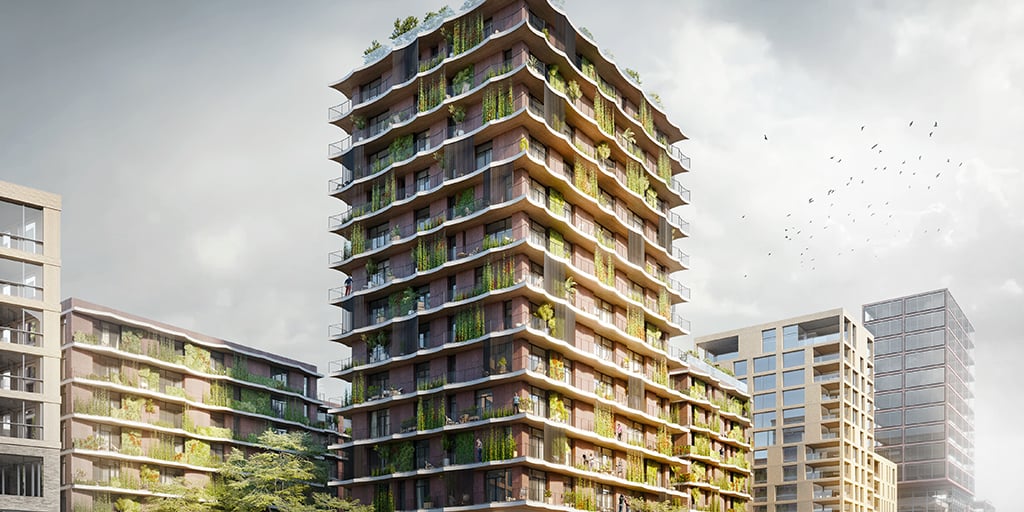


The Moringa Hamburg is principally designed with recyclable and non-toxic materials and offers more green areas than the developed plot has square metres. If the building were to be dismantled at some future point, it is guaranteed that the products used in its development can all be recycled and re-used. It is destined to be the “healthiest building” in the Hanseatic city. Completion in the Hafen City in the Elbbrücken quarter at northern Baakenhafen is planned for the spring of 2025 with other locations to follow. The project has already received the German Award for Sustainability Projects.
Moringa is a green lung in the port, producing oxygen and reducing pollutants. The project, is being built directly at the waterside, and offers single people in the capital of Hamburg a co-living concept consisting of shared apartments, common areas and offers facilities such as a community app, co-working opportunities, a day-care centre and restaurants.
Moringa GmbH sees its projects as valuable raw material depots: Nearly all materials, components and entire buildings should be designed in such a way that they can be recycled either in the biological or technical cycle and a large part of the building materials should be able to be dismantled non-destructively. The C2C principle meets high quality requirements, which have a positive effect on cultural and biological diversity, for example by means of a conscious selection of materials, their processing and installation.
For KALDEWEI, the cooperation is a confirmation of the fundamental corporate philosophy of combining high-quality design, functionality, sustainability, and quality in every single product. “The contracts have been signed and we are proud to be able to participate in this pioneering and sustainable construction project” says Frank Jentsch, Head of Project Management Germany at KALDEWEI. Shower surfaces, washbasins and bathtubs made of steel enamel from KALDEWEI will be installed. This material is impressive, with its long service life and 100 percent circularity in quality and quantity, which means: once in the cycle, steel enamel can be used again and again, meeting the requirements of the future construction industry in the best possible way.
The Cradle-to-Cradle concept developed by the German chemist Prof. Dr. Michael Braungart and the American architect William McDonough® explains the principle of two continuous cycles: Consumables are biodegradable in the natural nutrient cycle. After use, consumer goods are broken down into single-variety raw materials and fed into the technical cycle. Their material quality is retained and therefore downcycling is avoided. There is no more waste, only usable, chemically harmless nutrients.

![]()
KALDEWEI offers luxurious bathroom solutions of superior quality and timelessly elegant design. Bathtubs, shower surfaces and washbasins are made from sustainable steel enamel.
MOST READ





You are currently viewing a placeholder content from HubSpot. To access the actual content, click the button below. Please note that doing so will share data with third-party providers.
More InformationTHP is a subsidiary of Sleeper Media
© 2025 copyright TOPHOTELPROJECTS GmbH – all rights reserved